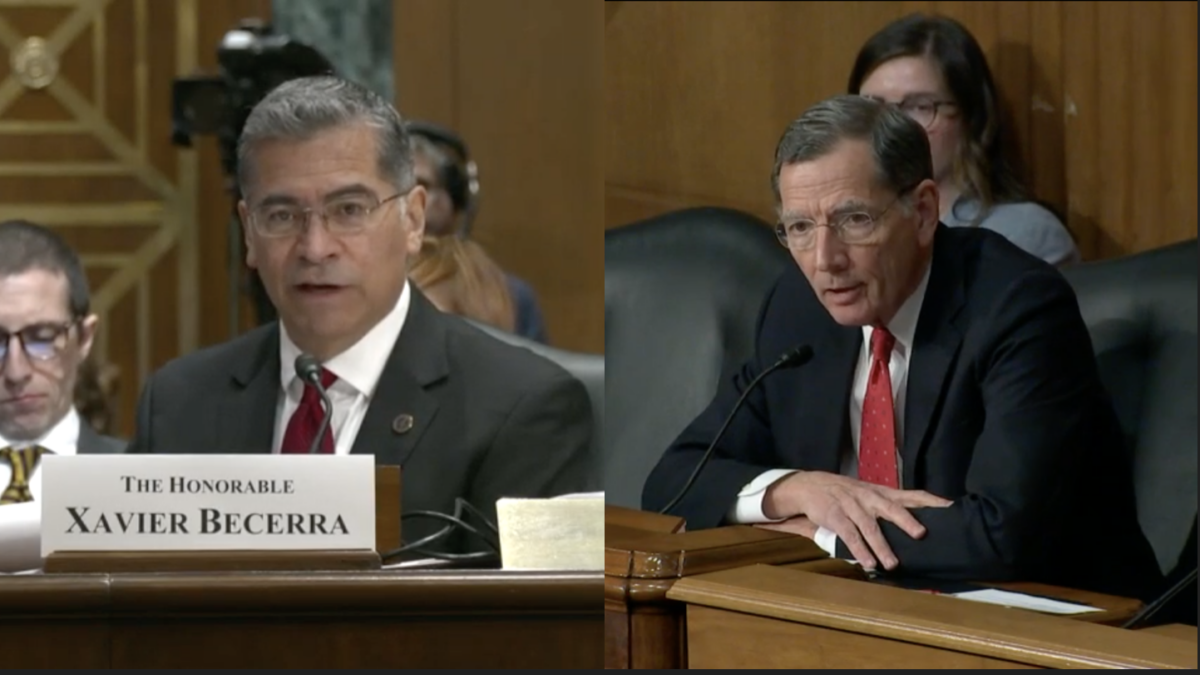
For the past few weeks Washington’s focus has been on Obamacare’s broken website — and broken promises. But rather than owning this colossal mess of centralized government, President Obama is trying to pivot to another comprehensive reform that’s similarly lathered up with unrealistic expectations.
A wide-ranging coalition of Big Business, Big Government and Big Religion are mounting a new effort to pressure House Republicans into supporting an immigration overhaul that passed the Senate earlier this year. The immigration system is, as news stories dependably inform us, “decades-old.” From this we are supposed to infer that old things can’t work properly (though, somewhat curiously, the “decades-old” Voting Rights Act or the Roe v. Wade decision must never ever be touched, ever).
In any event, this all sounds familiar. And though I’m in favor of allowing people to cross borders and work wherever they want for whatever compensation they deem acceptable, the fallout from “comprehensive” health-care reform should have Americans asking themselves: Maybe the system we have is less broken than the system we think we’re going to get?
Now, it is pro forma for elected officials to declare that immigration policy, much like the health-care policy before it, isn’t working. But Americans have different understandings of what not “working” means: 1- Some believe the immigration system is broken because government isn’t enforcing laws that already exists. 2- Some believe it isn’t working because they don’t want to see the law enforced in the first place.
And then there is a third group, one that doesn’t really ponder immigration problems at all. These folks, it seems, aren’t particularly agitated by landscapers mowing their lawns without visas, nor are they exceptionally threatened by the cultural diversity that immigration brings and they aren’t morally outraged about people voluntarily live in the “shadows.” Maybe they understand that shadows in Phoenix can be a hell of a lot brighter than the sunshine in Juarez. Maybe they realize that there already is a “pathway to citizenship”? And maybe they realize that the balance we’ve struck isn’t really all that terrible.
Let’s call that last group: “almost everyone in the entire country.” Gallup and other pollsters have consistently found that Americans place reforming immigration at the very bottom of a list of the priorities they want Washington to address — right next to gun violence. It reminds me of a poll by USA Today/Gallup that found 85 percent of Americans were broadly satisfied with the quality of medical care they receive and with their healthcare costs. The cry for a “comprehensive” fix is often a manifestation of partisan pressures that don’t correspond to the reality most Americans experience. They just keep telling us we need something until we believe it.
Obamacare also teaches us that implementation of comprehensive reform probably won’t look the way you imagined it would – not only because of the countless unforeseen circumstances that pop up with any reform, but because this government arbitrarily enforces law. Do House members have any reason to believe that the administration is going to be serious about border certifications any more than it was serious about the employer mandate or any of the Obamacare deadlines it blew through?
Only last year, through an executive order, the Obama administration ignored congress and began halting deportations and offering work permits to Dream Act-eligible students — children brought to the country illegally. “They pledge allegiance to our flag. They are Americans in their hearts, in their minds, in every single way but one: on paper,” Obama said. Some surely do, and others surely don’t, but immigration has a human element that allows the abuse of executive power to exist without much blowback. (A problem for some us; even if we sympathize with the outcome.) You can imagine the sob stories we’ll have to endure trying to penalize, and then integrate, 11 million undocumented immigrants into American society.
Then there is the issue of cost. The CBO predicts that Senate immigration bill would decrease unemployment and increase investment and productivity. It also claims that the bill would reduce the deficit by $175 billion through 2023.Though, most economists agree that immigration is beneficial, any exact number is guesswork. The question should be: is the status quo healthier for the economy than creating millions of new citizens who will be thrown into a welfare system (which will happen, regardless of guarantees that it won’t)?
Milton Friedman somewhat famously argued that open immigration and a welfare state cannot coexist harmoniously. The recent dramatic expansion of the welfare state makes the addition of 8 million new citizens over the next ten years– the CBO projection – a potentially costly affair. If there’s one thing the War on Poverty shines at, it’s keeping people poor. And as Friedman also said, a bit less famously, immigration in a welfare state was “only good so long as its illegal.”
That’s an interesting paradox to think about. Make it legal and it’s no good. Why? Because as long as it’s illegal the people who come in do not qualify for welfare, they don’t qualify for social security, they don’t qualify for the other myriad of benefits that we pour out from our left pocket to our right pocket. So long as they don’t qualify they migrate to jobs. They take jobs that most residents of this country are unwilling to take. They provide employers with the kind of workers that they cannot get. They’re hard workers, they’re good workers, and they are clearly better off.
This isn’t an argument that either side will like very much, but it’s conceivable (and I tend to believe) that chances are high that the state of affairs we find ourselves in are better than the alternative, which would create a bureaucratic mess and not much more.
Sen. Marco Rubio, one of the authors of compromise immigration bill in the Senate, is now backing away from comprehensive reform and supporting a piecemeal approach, so passage seems unlikely. Yes, the GOP establishment believes that they can lure more Latinos into the fold with a big bill, even though there little proof that the dynamics of the Latino vote can be changed by sharing credit for broad-based reform. For Republicans, improving the Hispanic turnout is a long-term project that hinges on compelling economic ideas not pandering. Democrats, of course, want a bunch of new voters and, whether they win or not, they get to bludgeon their ‘nativists’ opponents and solidify their standing with minorities. That’s politics.
But if Obamacare, which is a huge tangled web of interdependent pieces, has taught us anything about policy, it’s that most often incremental reforms make better sense. And sometimes, no reform at all make the most sense
Follow David Harsanyi on Twitter.









